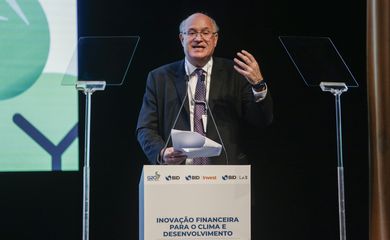Brazil's Central Bank reduces basic interest rate to 10.75% per year

The behavior of prices has led the Central Bank to lower interest rates for the sixth time in a row. The Monetary Policy Committee (Copom) unanimously reduced the Selic rate, the economy's basic interest rate, by 0.5 percentage points, to 10.75 percent per year.

In its statement, Copom indicated that it is likely to implement another 0.5 percentage point reduction at its next meeting in May. This raises the possibility that the committee will pause the cycle of rate cuts starting from June onwards. In previous communications, the committee had suggested that it would continue reducing rates "in the next few meetings."
According to the statement, the inflation outlook remains stable, with risks both to the upside and downside. Factors that could push inflation higher include ongoing global inflationary pressures and increased activity in the services sector. Conversely, a more pronounced slowdown in the global economy or greater-than-expected effects from interest rate increases in other countries could dampen inflationary pressures.
The Selic, Brazil's benchmark interest rate, currently stands at 10.75 percent per year, its lowest level since March 2022. This rate is used in government bond transactions through the Special System for Settlement and Custody (Selic) and sets the standard for other interest rates in the economy.
Inflation
The Selic is the Central Bank's main instrument for keeping official inflation under control, as measured by the Broad National Consumer Price Index (IPCA). In February, the indicator stood at 0.83 percent, contributing to a 4.5 percent increase over the past 12 months. Despite experiencing a series of declines in recent months, inflation has seen a slight uptick, primarily driven by increases in food prices and the cost of educational services.
The 12-month rate currently sits precisely at the upper limit of the inflation target. The National Monetary Council (CMN) has set a 3 percent inflation target for 2024, with a tolerance range of 1.5 percentage points. This means that the IPCA should not surpass 4.5 percent or drop below 1.5 percent this year.




